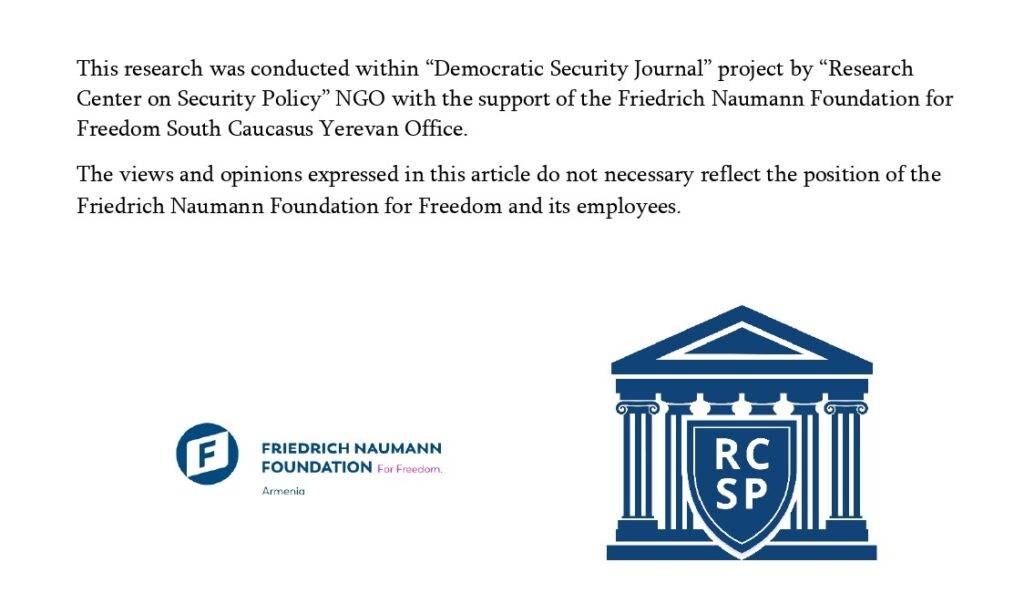The Ceremony
On January 20, 2024, Donald Trump was inaugurated as the 47th President of the United States. The geopolitical significance of this event is difficult to overstate. Trump’s presidency not only introduces systemic uncertainties but also showcases his “uniqueness” down to the smallest details. Unlike the traditional practice of inaugurations taking place in front of the Capitol, Trump’s ceremony was held inside the White House’s closed hall. Additionally, outgoing President Joe Biden did not descend the Capitol’s steps, breaking a long-standing tradition.
Given the meticulous adherence to tradition in U.S. political culture, these deviations can be interpreted as a symbolic announcement of a “new era.” Whether this “new era” will significantly differ from the “old” or if U.S. foreign policy will once again display its rationalist tendencies to ensure the organic continuity of processes depends on Trump’s and his inner circle’s vision for short-term interests.
Meanwhile, the ceremony itself, the speeches delivered during the event, the conversations with journalists afterward, and the subsequent decisions have already laid the groundwork for intriguing developments in political discourse and sparked a wave of predictions.
Trump’s Speecհ[i]
The majority of Donald Trump’s inaugural address was focused on domestic issues. As anticipated, Trump delivered sharp criticism of the previous administration, pledging to restore America as a leading and thriving nation. He announced plans to deploy armed forces to the southern states and addressed other internal challenges.
The new president reaffirmed his campaign stance on immigration, emphasizing the deportation of undocumented immigrants and a reduction in the number of immigrants admitted to the U.S. Additionally, Trump highlighted a commitment to advancing the field of space exploration, vowing to place the American flag on Mars. This declaration seemed to be a nod to his associate—and reportedly close friend—Elon Musk, who responded enthusiastically to Trump’s statement.
Another part of the speech was directed at the conservative segment of American society, which, according to statistical data, played a significant role in Trump’s election victory. The president reiterated his belief that “from today onward, the official policy of the United States recognizes only two genders: male and female.”
On foreign policy, Trump reiterated his commitment to ending wars and avoiding involvement in new conflicts. He particularly emphasized the ceasefire in Gaza, describing it as a shared achievement of both the new and previous administrations.
One notable announcement was Trump’s plan to establish a “Foreign Revenue Service.” His ambition to secure a leading position for the U.S. in the global energy market—primarily through its oil and liquefied natural gas resources—aligns with his intent to generate revenue from international markets. Trump declared a state of “energy emergency,” signaling a planned increase in resource extraction volumes. This segment of the speech has been interpreted as an indication of his administration’s focus on gaining competitive advantages in economic and energy sectors.
Overall, experts view Trump’s speech as predictable, albeit with some deviations from traditional rhetoric[ii]. He largely reiterated the priorities outlined during his campaign, offering hope that U.S. policy in the near future will be guided by these principles.
Russian-Ukrainian War
In his inaugural address, Donald Trump did not directly address the Russian-Ukrainian war. The only related mention was his general pledge to establish peace globally, echoing his pre-election rhetoric. However, during a subsequent Q&A session, Trump clarified that his claim of ending the war within 24 hours had been a joke. He stated that there would be meetings with both Ukrainian and Russian representatives to determine a feasible path to ending the conflict. Furthermore, Trump signed an executive order temporarily suspending U.S. foreign aid programs for 90 days[iii].
This approach has been perceived in Russia as a sign of indecision regarding the war. Konstantin Kosachev, deputy chairman of the Russian Federation Council, commented that Trump appears to lack a clear stance or confidence in implementing his strategies[iv].
Russian political circles seem to anticipate a “business-oriented” dialogue with the U.S. under Trump, potentially leading to the acceptance of Russian perspectives, provided Russia first secures a battlefield advantage[v].
German politician Norbert Röttgen of the Christian Democratic Union offered a different perspective, suggesting that Trump’s silence on the war indicates a lack of prioritization for this issue[vi].
In Ukraine, there is an emphasis on leveraging Trump’s “business-political” tendencies. Andriy Dlyhach, an associate professor at Kyiv National University and a civic activist, argued that “Ukraine must present itself to Trump as a new opportunity”[vii]. However, overall expectations from Trump’s administration are low in Ukraine, particularly regarding both the war’s resolution and continued support for Ukraine[viii].
Ukrainian President Volodymyr Zelensky underscored the importance of strengthening Europe’s military capacity during his speech at the Davos Forum. He expressed doubts about Trump’s commitment to NATO, warning that any reduction in U.S. support could lead to security challenges in Europe[ix].
Forecasts for Trump’s Policy Effectiveness
Experts in the United States highlight significant challenges in implementing Donald Trump’s policies[x]. Certain proposals, such as revoking birthright citizenship for immigrants’ children, mass deportation of undocumented immigrants, and reestablishing control over the Panama Canal, are deemed unrealistic. Additionally, skepticism surrounds the feasibility of Trump’s “America First” doctrine. Critics argue that advocates for international engagement, both conservative and progressive[xi], wield sufficient influence to limit the full realization of this approach. As a result, Trump’s foreign policy is likely to strike a balance, involving selective engagement in some regions while reducing involvement in others.
Reactions to Trump’s inauguration and subsequent policies vary widely between Israel and Iran. In Israel, both politicians and the public have expressed enthusiasm for Trump’s leadership. In contrast[xii], Iran approaches the new administration with caution, concerned about potential threats to its nuclear facilities and the possibility of renewed internal instability[xiii]. Iranian analysts believe that diplomacy under Trump will be driven by his personal motives and preferences, creating uncertainty for Iran’s strategic planning.
Moreover, in Iran, it is believed that “diplomacy in Trump’s America will be driven by his personal motives and desires”[xiv].
Trump’s Inauguration and Armenia
Trump’s speeches have sparked mixed reactions in Armenia. These reactions range from the concept of a “Return of Russia to the ranks of superpowers”[xv] to the belief that “Trump’s attention may turn toward the South Caucasus”[xvi]. However, avoiding extreme predictions, the context of Trump’s speeches and statements suggests the formation of an image of the U.S. president as a “peacemaker,” yet one who creates “profitable and lucrative” policies.
In this regard, the successful conclusion of the Armenia-Azerbaijan peace process could align with the values declared by Trump and be presented as one of the “success stories.” Within the same logic, the “Peace Crossroads” project can also be considered. Moreover, in this case, the interest will not be limited to shaping the image of a “peacemaker” but will also involve significant economic interest as part of the “Middle Corridor” project.
Another direction for Armenia-U.S. relations that Trump’s administration might find intriguing is cooperation in the field of nuclear energy. The special attention given to the energy sector in Trump’s speech should be capitalized upon politically. In this context, it would be desirable to promptly start building nuclear power plants in Armenia using American technologies and involving American companies.
Trump’s policy may not inherently imply decisions and actions favorable to Armenia, but Armenia has the opportunity to work toward gaining the new U.S. administration’s support and striving to extract the maximum benefit from this collaboration.
[i] https://www.cbsnews.com/news/transcript-trump-inauguration-speech-2025/
[ii] https://www.cbsnews.com/news/transcript-trump-inauguration-speech-2025/
[iii] https://time.com/7208678/trump-suspends-us-foreign-assistance/
[iv] https://lenta.ru/news/2025/01/21/v-sovfede-ob-yasnili-otsutstvie-ukrainy-v-inauguratsionnoy-rechi-trampa/
[v] https://rtvi.com/news/umeet-nagibat-slabyh-chto-zhdut-v-rossii-ot-novogo-sroka-trampa/
[vi] https://www.tagesspiegel.de/politik/cdu-aussenpolitiker-norbert-rottgen-es-ware-besser-wenn-der-neu-gewahlte-kanzler-zu-trump-reist-13027684.html
[vii] https://ru.euronews.com/my-europe/2025/01/21/davos-trump-inauguration-speech
[viii] https://nv.ua/ukraine/events/inauguraciya-trampa-2025-chto-govoryat-ukraincy-v-socsetyah-50483065.html
[ix] https://www.telegraph.co.uk/world-news/2025/01/21/ukraine-volodymyr-zelensky-nato-europe-donald-trump/
[x] https://www.svoboda.org/a/burnyy-start-trampa-inauguratsiya-i-pervye-ukazy-47-go-prezidenta-ssha/33283200.html
[xi] https://www.msnbc.com/opinion/msnbc-opinion/trump-foreign-policy-isolationist-realist-rcna183877
[xii] https://forward.com/fast-forward/690586/at-a-trump-inauguration-event-in-jerusalem-fervent-optimism-with-an-undercurrent-of-unease/
[xiii] https://www.msn.com/en-xl/news/other/iran-iranian-newspapers-react-to-trump-s-return-to-white-house/vi-AA1xBHx2
[xiv] https://shorturl.at/LrvRp
[xv] https://www.irates.am/hy/1737450799?fbclid=IwY2xjawH9oVpleHRuA2FlbQIxMAABHY2Uaqazzg67U-uEW23xztLAKXdtB9yHU6NnjNFSG1isaJ5zz4-ytVFhOQ_aem_FPbr6Pw6blXxErL9KqTqfA
[xvi] https://shorturl.at/LrvRp
Author: RCSP expert Robert Gevondyan


